KAMINHU DI NTCHANHA
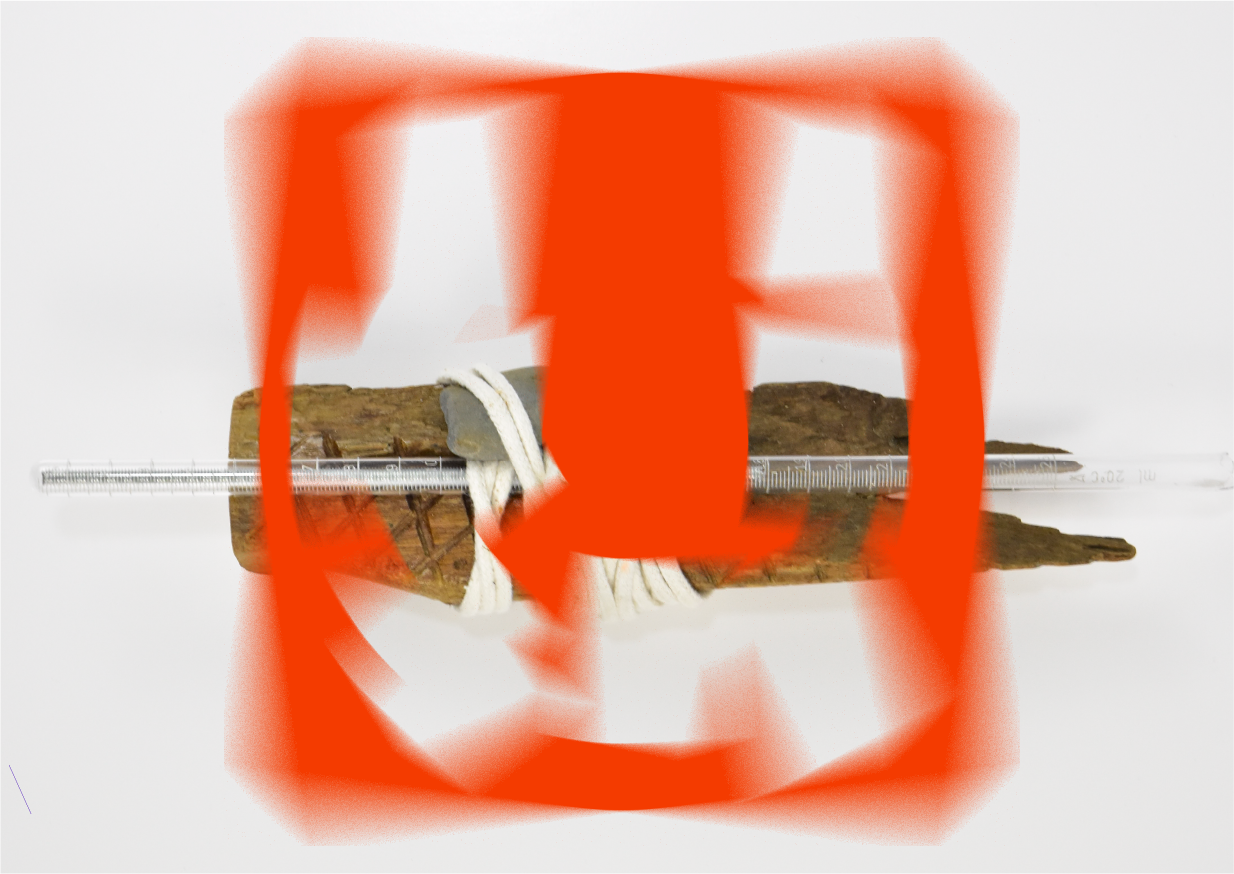
A collective creation 28.03.2025 18:00
Abotcha Mediateca, Malafo, Guinea-Bissau
The Berlin Conference (1884–1885) was a sorcery that sliced up Africa for power and profit, establishing arbitrary borders and legitimizing European extractive dominance over lands and resources in Africa. The assembly of Malafo – Kussundé of Berlin proposes a counter-sorcery to re-enchant raw materials through art, transforming them into a sound and performative service to “put to rest” the ghosts of the past and break the cycles of exploitation. Inspired by the Balanta festival of Kussundé, opposing the colonial "actas" that “tied” Africa, this assembly without minutes seeks to “untie” the historical ills imposed by colonialism, one of the expressions of patriarchy.
KAMINHO DI NTCHANHA is a piece that explores the control of patriarchy over territories. Once, white men divided Africa; today, men of all colors still continue to decide about the bodies and destinies of women. The invaded territory changes, from land to intimacy, but the logic of domination and structures of power remain: the plundering of autonomy, the silencing of wills, and the use of territories as motives for profit, whether human bodies and souls or geographical spaces. Women become borders drawn without consultation, resources exploited without consent. But this sorcery will be broken; they rise, seek Ntchanha, the powerful woman who makes pots that heal the soul, calling upon ancient and collective knowledge to break the cycle and reclaim the right to chart their own paths and take the reins of their own destinies.
KAMINHO DI NTCHANHA is a collective work with the Malafo Experimental Theater group and takes place in the framework of the project DESACTA.
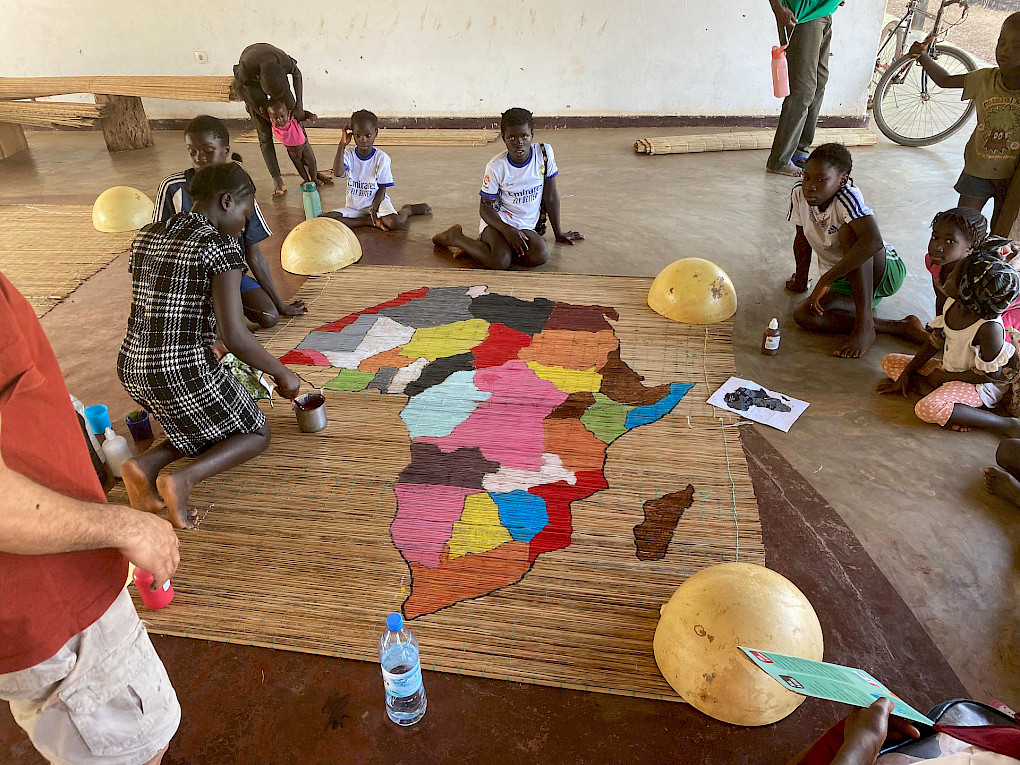
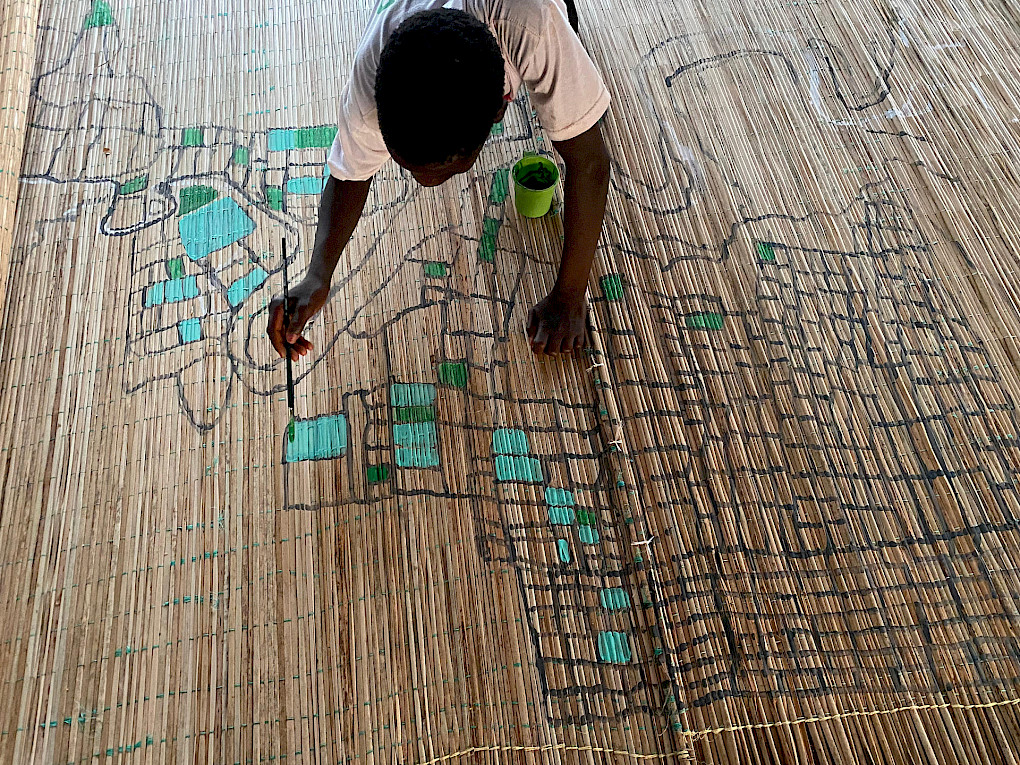
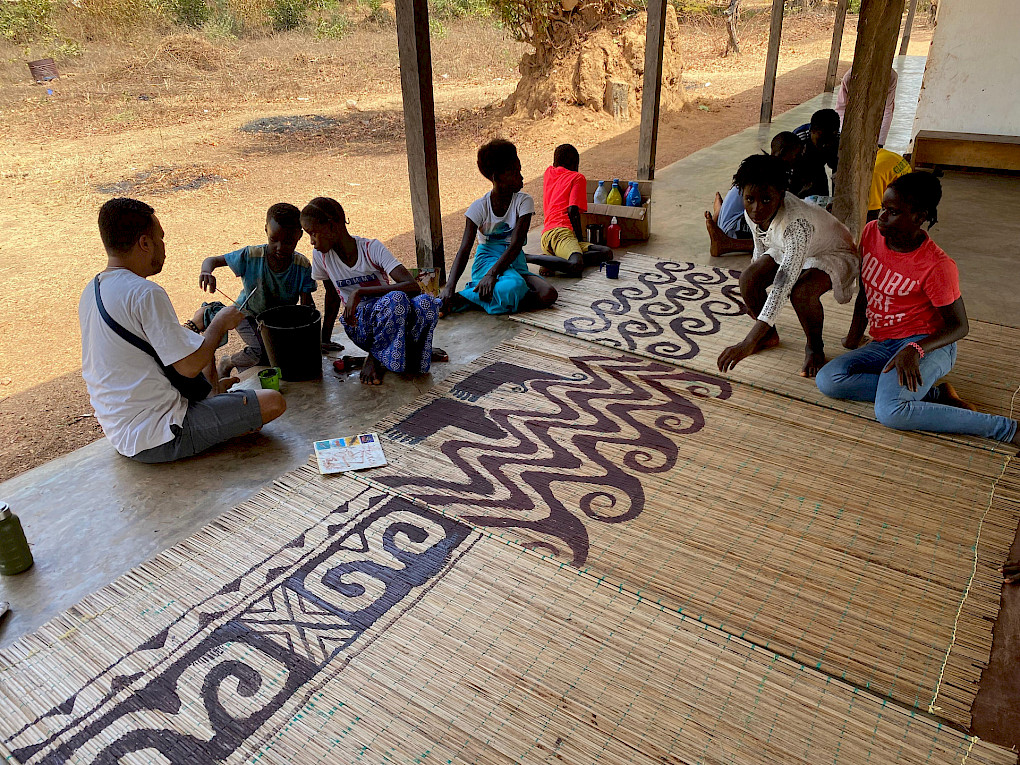
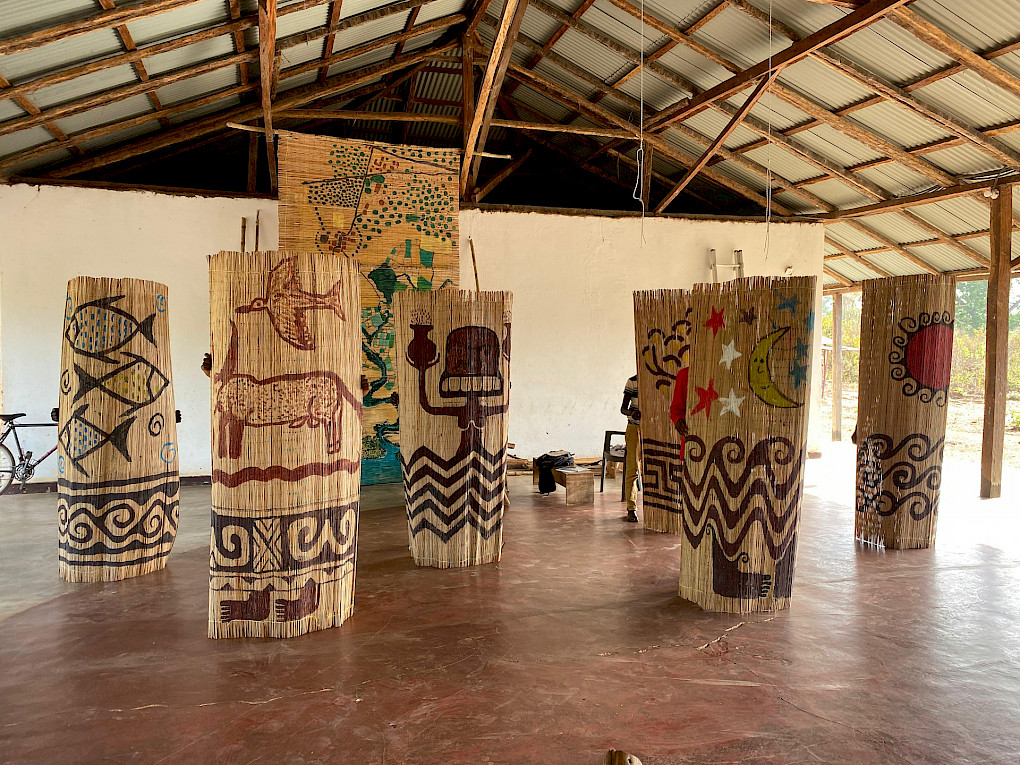
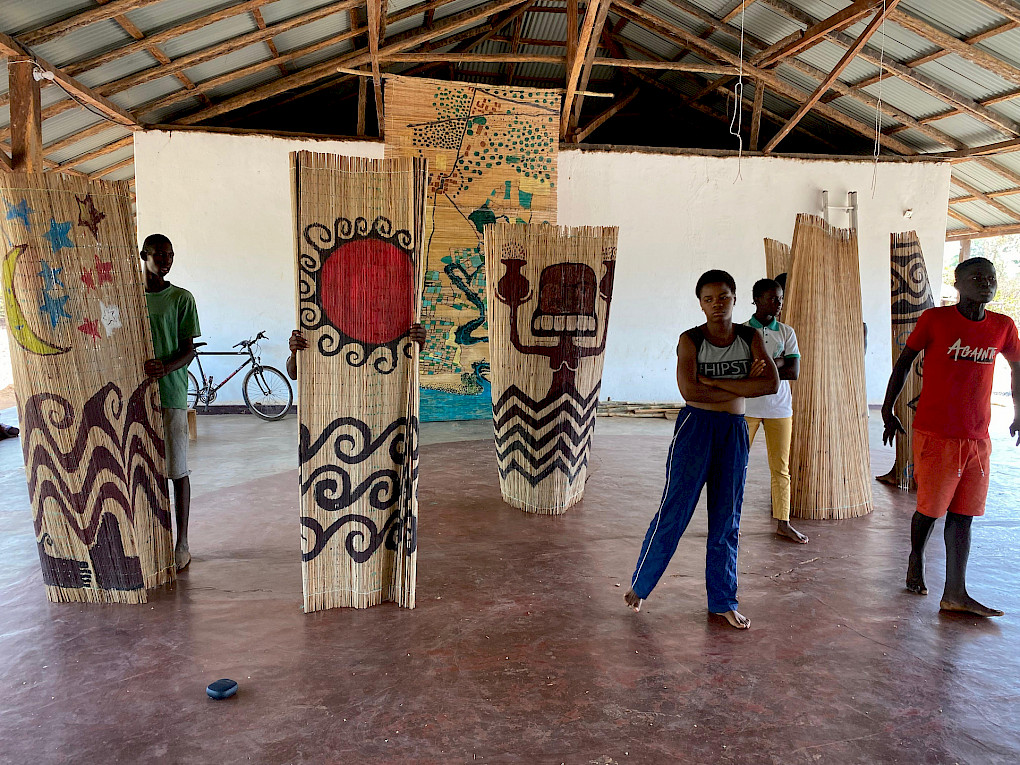
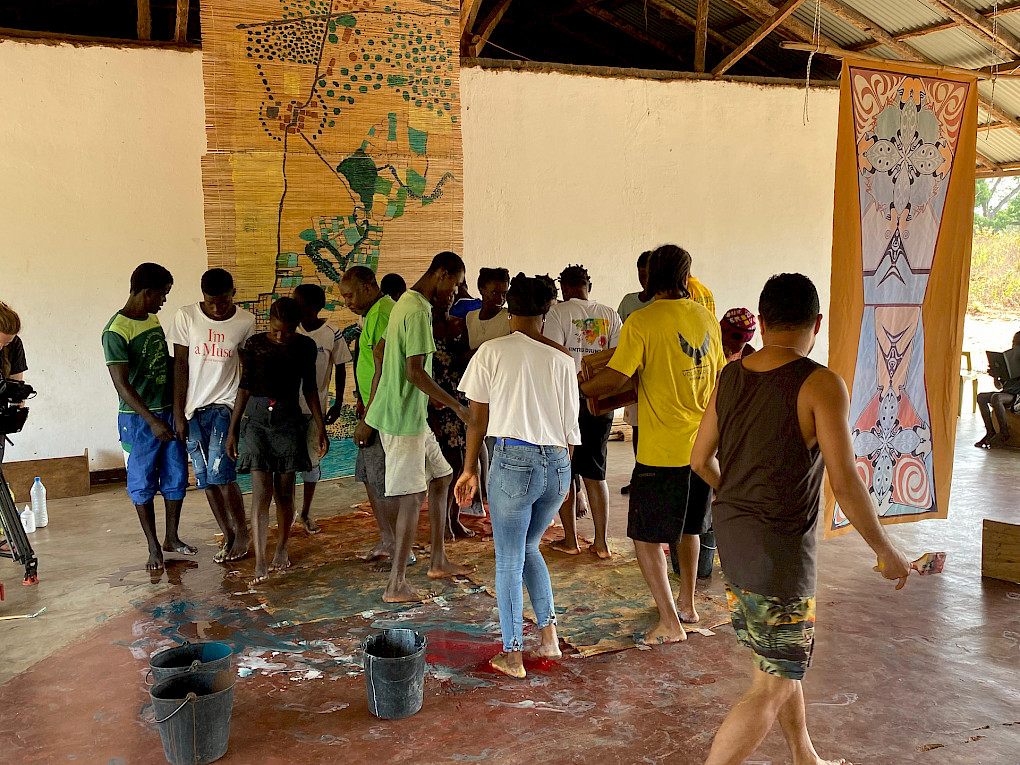
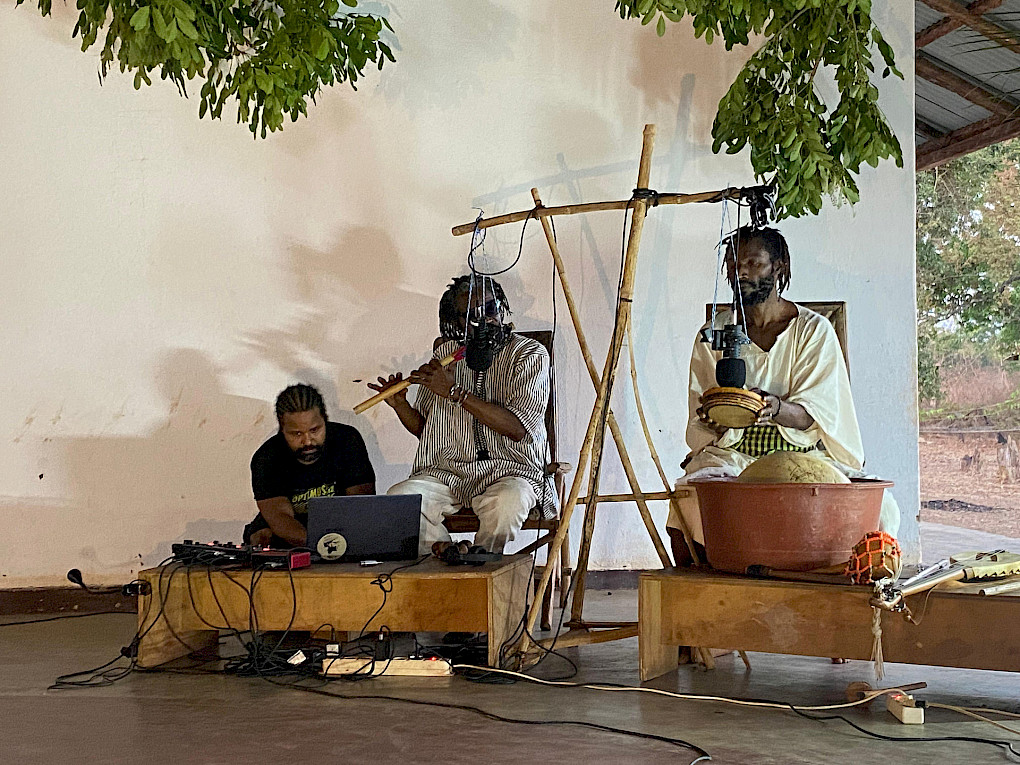
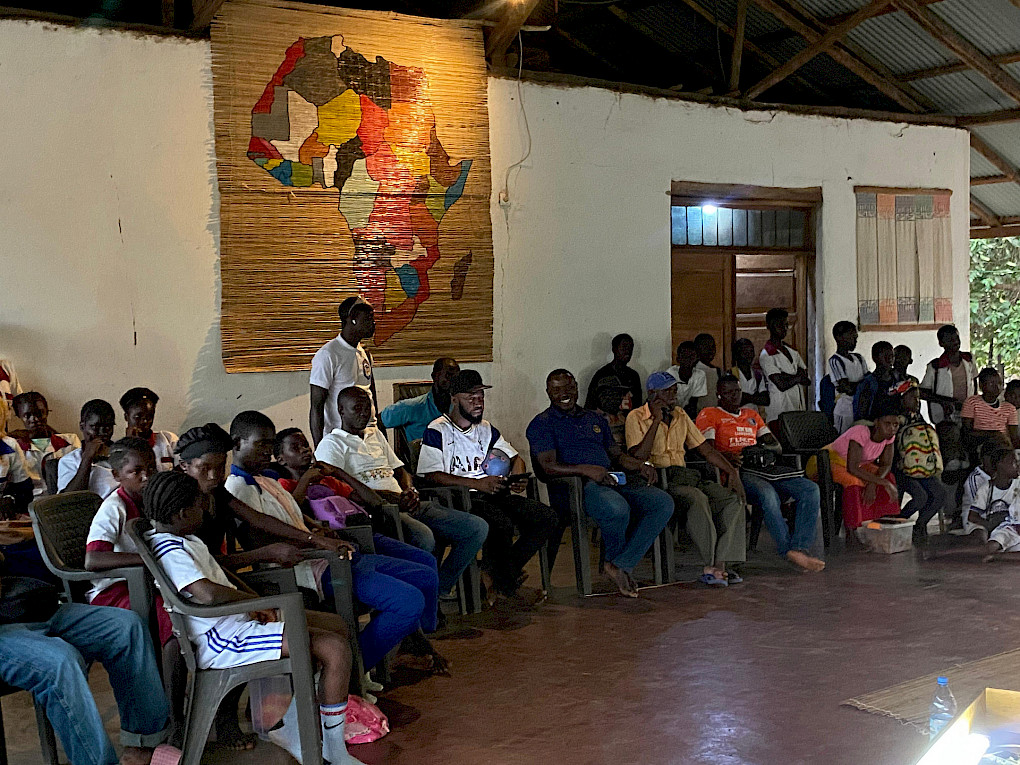
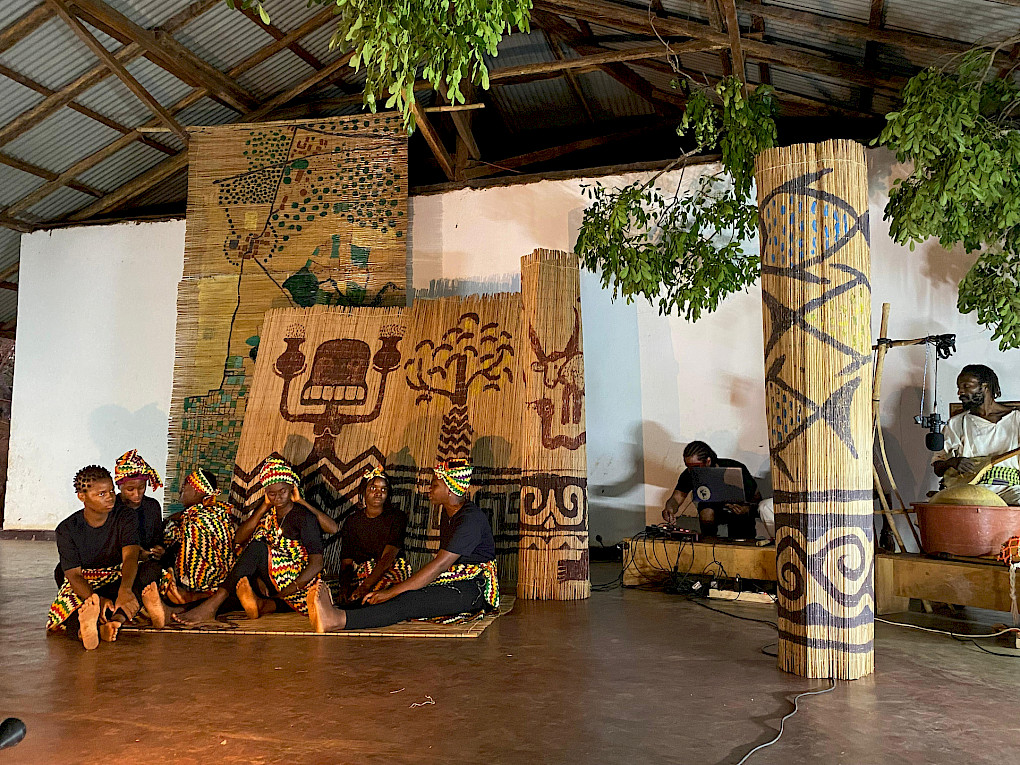
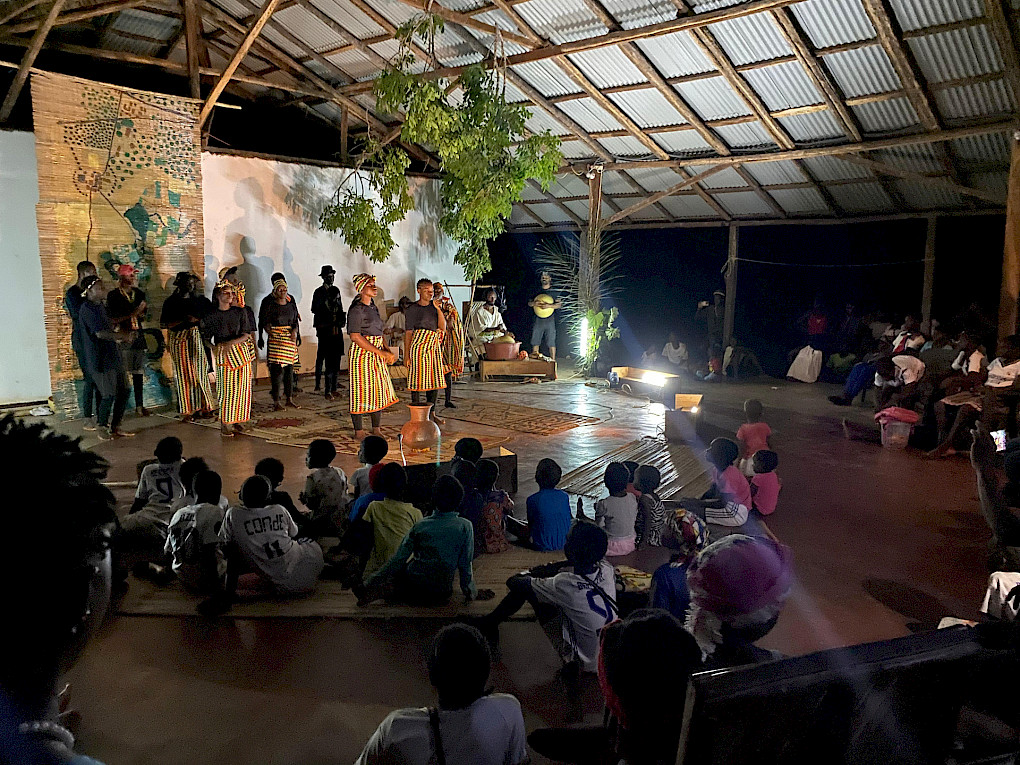
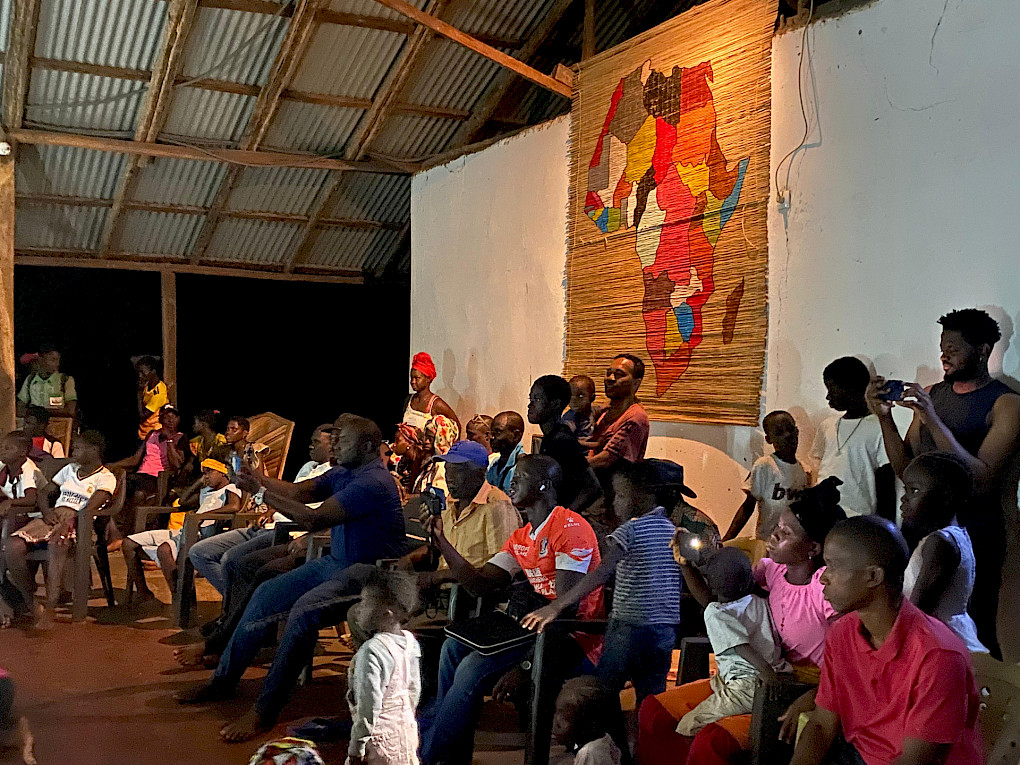
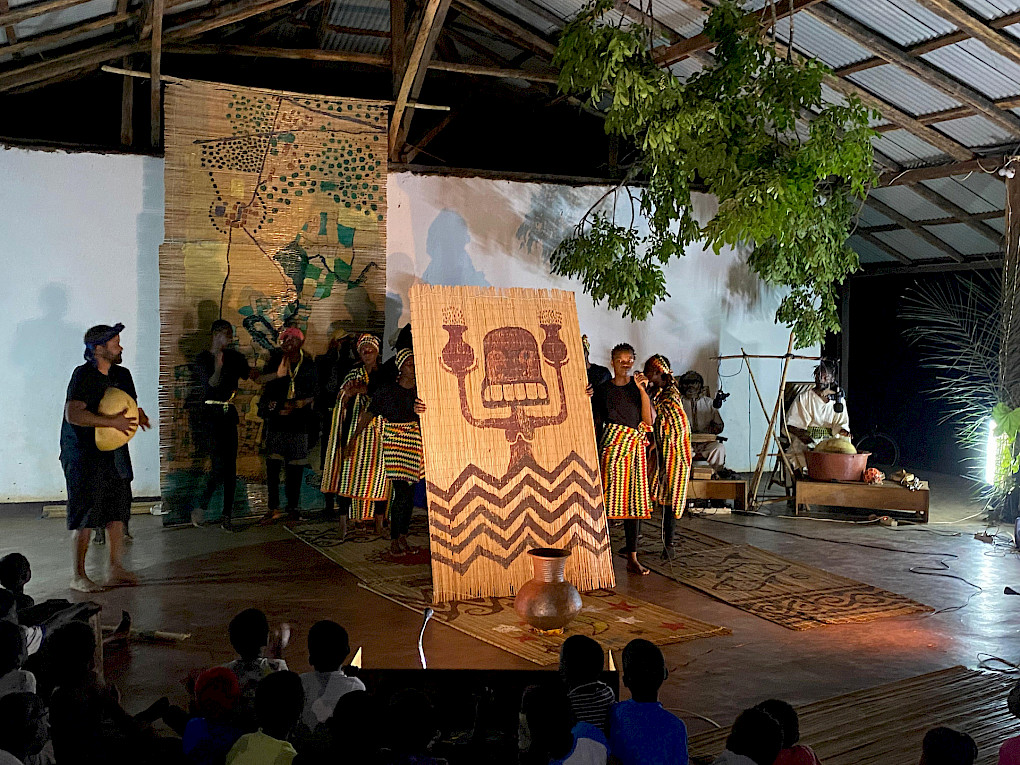
Images by Filipa César.
KAMINHO DI NTCHANHA is a collective work with the Malafo Experimental Theater group.
Direction Jorge Biagué and Marinho Pina
set design Filipa César and Dicky Takndare
images Jenny Lou Ziegel
music Mû Mbana, Xumo Nunjo, Marinho Pina, and Ntchanha
Production Geba Filmes, in collaboration with SAVVY Contemporary
The project DESACTA is a collaboration between SAVVY Contemporary, Cooperativa Geba Filmes & Abotcha – Mediateca Onshore.
Team
IDEA Filipa César, Mû Mbana
CURATorial team Filipa César, Billy Fowo, Hajra Haider Karrar, Anna Jäger, Mû Mbana
MANAGEMENT Lema Sikod, Lynhan Balatbat-Helbock
COMMUNICATION & TRANSLATION Anna Jäger
GRAPHIC DESIGN Neusa Trovoada
Funding This project is funded by Hauptstadtkulturfonds.

